“Thereafter, we felt he was going also to emerge as the running mate in 2022. He didn’t consult any of us. He just left the party!” – Reno Omokri, Social media influencer well past his sell-by date, and Alhaji Atiku Abubakar’s alter ego
Reno Omokri Comes To Equity With Unclean Hands
Ordinarily I wouldn’t disregard wise counsel from communication strategists who think it’s best to anonymize Reno Omokri whose purpose in the 2023 general elections appears to be limited to clickbait and contrived outrage. However, the latest outing of Reno Omokri was designed to misdirect attention and sow the seed of a doubt at a time of great peril. What he said needed to be put in a historical and geo-political context.
I have tried to do just that.
Join our WhatsApp ChannelIn a video posted on social media last week and presumably directed to the Nigeria youth movement, Reno Omokri started off his fictional retelling of contemporary history at an event in 2018. But he didn’t go far enough, and I thought that I could do better than that.
General Abacha once bestrode the entire Nigerian landscape like a colossus
In the foggy days of General Sani Abacha’s brutal tenure from 1993 – 1998, at one time or another: Chief M.K.O Abiola, the acclaimed winner of Nigeria’s 1993 general elections languished in jail because he refused to forfeit his popular mandate; his wife, Alhaja Kudirat Abiola, was murdered by agents of the state at a point close to Ojota Toll Gate (7-UP interchange), on the outskirts of Lagos, for her activism; the civic space was under siege: many had fled into exile; Col. Frank Omenka was doing unspeakable things to people in unlighted, airless horror dungeons on behalf of Maj. Hamza Mustapha, Gen. Abacha’s Chief Security Officer; notable politicians were either serving Abacha as ministers or were in jail; an attempt had been made on the life of Alex Ibru, the publisher of the Guardian ‘who had served briefly in Abacha’s cabinet, then resigned on principle’ – (please read that again for a line like that had never been written of a Nigerian minister before or after, alive or dead); Chief Ken Saro Wiwa and 8 members of MOSOP (Movement for the survival of the Ogoni Peoples) had been arrested in Port Harcourt for a mass murder committed by a mob. They were tried and convicted in a civilian tribunal which had military top brass as members: and Gen. Abacha, against all expectations confirmed the sentences, and the execution of the Ogoni 9 was hurriedly carried out in the face of unprecedented national and international outrage; Gen. Olusegun Obasanjo was cooling his heels in jail convicted of plotting a coup; and Senator Bola Ahmed Tinubu was in exile.
Just to put faces on a number of activity centres in what was an overheated polity under Abacha. Something was bound to give.
In this world, there must be a certain degree of honor just as there must be a certain amount of light. When there are many men without honor, there will always be some others who bear in themselves the honor of many men. – Jose Marti, Cuba’s national poet
The Quiet heroism of Chief Alex Ekwueme
It was at this precarious time that Chief Alex Ekwueme, former vice-president in Second Republic under Alhaji Shehu Shagari, did a courageous thing. He consulted around the country with the remnant of the political class and they founded G-18. The Nigerian press dubbed it the group of 18 wise men, and their primary purpose was to associate and resist the massive assault that the army under Generals Muhammadu Buhari, Ibrahim Badamasi Babaginda, and Sani Abacha had unleashed on them. They later expanded G-18 to become the G-34 with members drawn from all over Nigeria’s six geo-political zones – Northwestern, Northeastern, the Niger/Benue River Central, Southwestern, Southeastern, and South-Southeastern.
Notable members of G-34 included Pa Ayo Adebanjo, Pa Edwin Clark, Chief Solomon Lar, Chief Ralph Obiora, Prof. Jerry Gana, among others. Prof. T. Uzodinma Nwala was secretary.
The annulment of Chief Abiola’s 1993 electoral victory by Gen. Babangida had given rise to unprecedented resistance against military rule by the people. It appeared that the military had lost its flashy hero-complex and people had begun to find them intolerable. They had come to resolve complex national problems but succeeded in making those problems intractable instead. The annulment was one false turn too many by the military.
NADECO – National Democratic Coalition (Nigeria) – which was formed by a broad-based participation of civic groups and persons based in Lagos and in the Southwest tapped into this mood. It dedicated itself singularly to the actualization of Chief Abiola’s mandate. The National Labour Congress with its affiliated unions were on board, and so was NUPENG – National Union of Petroleum and Natural Gas Workers – under Chief Frank Kokori.
They all weighed in and made that season of resistance of strikes and protests a national event.
The G-34 wise men were compelled to work on many levels at the same time. They joined the call to restore Chief Abiola’s mandate but they recognized that a better strategy demanded a longer view. No one was sure what the military wanted but it seemed that they now coveted partisan politics. Gen. Babaginda, who styled himself a ‘president’, would later annul Chief Abiola’s election just because he could. So the G-18/G-34 went further and worked to erect the framework of a structure with which to contest the political space on a national level whenever the army revealed their motives.
The most grievous open wound on our national psyche remains the callous indifference of purpose of Gen. Ibrahim Babangida that led him to annul the Saturday, June 12, 1993, presidential election with a clear, undisputed winner in sight. – Ik Ngene, Nigeria’s 1993 General Elections: The Good, The Bad, and The Ugly
Two things proved their foresight: First, Gen. Abacha sought to transmute himself to a civilian president by the electoral process. Perhaps he wanted to go one step further that Gen. Babangida, who preceded him in office, who had been a ‘president’ in military name only. Using state funds Abacha mobilized contrarian civic groups such as Daniel Kanu’s Youths Earnestly Ask For Abacha (YEAA), and Chief Arthur Nzeribe’s ABN – Association for a Better Nigeria (which had played a starring role in the annulment of Abiola’s election). Both groups then occupied the civic space and started holding rallies and symposia to promote the candidacy of Abacha.
But life happened and General Sani Abacha died on June 8, 1998.
Abacha was succeeded by General Abdulsalami Abubakar. The following month Chief MKO Abiola died in the custody of the state under the most confounding circumstances. I leave that discussion for another day. Nigerians as one felt a deep sense of loss at the death of the charismatic winner of 1993 general elections. No national mourning was proclaimed officially but there was a new resoluteness in the hearts and minds of Nigerians. Enough is enough. Good for Nigeria that General Abubakar read the mood of the citizens just right for he was equally committed to a speedy transfer of power. He set the process in motion and then began to take actions to cool the polity.
Gen. Abubakar released Gen. Obasanjo from Yola Prison on June 15, 1998.
G-34 Becomes A Large Umbrella Of A Political Party – The People’s Democratic Party (PDP)
The men of reason who took decisions in the newly formed political party, PDP, considered the real politic of the circumstances Nigeria found itself at the dawn of the 4th Republic and agreed among other things: that the country must come first, ahead of their own personal ambitions; that the Yoruba were decidedly the aggrieved party here through actions and inactions of the military; that whereas the principle of federal character was enshrined in the constitution, its cousins and fellow travellers – power rotation and zoning – were not. So for equity and justice, and in order to produce a democratic space the nation could be proud of, these men of honour agreed to adopt rotation of power and zoning in principle.
READ ALSO:Reno Omokri Laments Online Abuse By Peter Obi’s ‘Supporters’
Across the country, the word went out that that a grievous blow was meted out to the Yoruba and steps must be taken to mend fences with this dominant constituent group. Gen. Obasanjo was received into the PDP and he won its nomination to contest as president. He chose Alhaji Atiku as his running mate. The other major party was the Alliance for Democracy, AD, and it fielded Chief Olu Falae by a similar understanding. Falae chose Alhaji Umaru Shinkafi as his running mate.
The PDP won and Gen. Obasanjo and Alhaji Atiku Abubakar ushered in the 4th Republic.
Please read that paragraph again. The contest for the presidency in 1999 was between two Christians from the Yoruba nation: Obasanjo (Egba) vs. Falae (Ondo). Both dominant parties did the right thing though it was not in the federal constitution nor the operating principles or guidelines of their party’s manifesto.
“We must, indeed, all hang together or, most assuredly, we shall hang separately.” – Benjamin Franklin, American Founding Father
Unfortunately from the start, under Obasanjo’s watch, none of the politicians acted within ethical boundaries or statesmanship: For some reason Atiku had the impression that Obasanjo would run for only one term. When it became clear that Obasanjo was going to run for a 2nd term, Atiku, in frustration, picked up a nomination form to contest against his principal in 2003. All that while he was still a vice president; then there was the natural tribe of the malcontents in PDP who felt aggrieved at the consensus to ease the path of Gen. Obasanjo to the nomination. In his first term Obasanjo went to war against them – Chiefs Diepreye Alamieyeseigha, Orji Ozor Kalu, Ebitimi Banigo, among others. Apparently, the lessons of the 2nd Republic and the aborted 3rd Republic were quickly lost to the emergent class; and finally, Obasanjo who had lost his region to the AD and Chief Falae, in 1999, decided to do something about it. For the 2003 general elections he unleashed Tafa Balogun, the Inspector General of the Police on his own people. It’s another story but suffice it to say, only Governor Bola Tinubu of Lagos State was re-elected from that zone. The PDP swept up the rest.
But Obasanjo’s victory came at a high cost. He broke the ground, tilled it, and with his ruinous bid for Third Term, created the chaos that backed-up, and made possible the emergence of Gen. Buhari in 2015.
RENO OMOKRI: My People and I have Paid Their Dues To The PDP
If Omokri chooses to make himself an agency of serfdom, feudalism, and neo-slavery, he’s on his own. The facts of our recent history are clear enough unless he is blinded by greed and ill-will:
Through all the combustible actions of other constituent parts who followed their leaders from one major party to the other, my people remained loyal to the PDP. We voted for Obasanjo twice, once for Alhaji Musa Yar’Adua, and twice for Jonathan. We paid no mind to Senator Rochas Okorocha when he wanted to lead us to APC; we didn’t trust the nepotic politician we called “Okoro Awusa” – whose loyalty lay offshore – and we didn’t trust Buhari, the overthrower of the Second Republic, who verbally exonerated Alhaji Shehu Shagari and impugned the character of Chief Alex Ekwueme. We voted against Gen. Buhari twice and there’s no love lost between us. My people were never taken into slavery by aliens so when we see the brittle gaze of a man who requires us to forfeit our agency, we start shaking our head from afar.
“Frankly my dear, I don’t give a damn!” – Rhett Butler, Gone With The Wind
In 2019, we gave Atiku our finest, Peter Obi, for his vice presidential running mate. We abided Atiku then and voted massively for his ticket. We didn’t do that because of his running mate but because we felt at home in the large tent of PDP and its guiding principles of inclusiveness and community. But did Atiku appreciate our gift? I doubt that, because if he did, he wouldn’t try to turn Jennifer, his Igbo wife, out into the streets. Don’t blame me – I took that personally. Anyway, doesn’t reciprocity demand that Atiku, as a national leader, point the PDP in the direction of fair play ahead of 2023. Yes, it’s the turn of the southeastern region or Central Nigeria – Why is that cry not resounding from homestead to homestead across our nation? What makes this season different from 1999?
Reno Omokri, Know This and Know Peace (if you will):
The founding members of PDP – those men of conscience with hearts of gold like Ekwueme, Solomon Lar and Pa Ayo Adebanjo – may or mayn’t have all gone. But there shall be no 2019 do over. Not on my watch. My people and I are moving forward and we’re not alone: All peoples who earnestly yearn for a New Nigeria of great possibilities – a land of good governance, meritocracy, and access to opportunity for our youth – are with us.
Reno Omokri, I’m no longer building bridges from my side only. I shall massage no more egos. My name is Dozie and I am running for president. And, yes,
“Ah no dey give shishi!”
Chuzy Chukwuanu is an Industrial Pharmacist based in Lagos; Ik Ngene is a history enthusiast and youth activist.

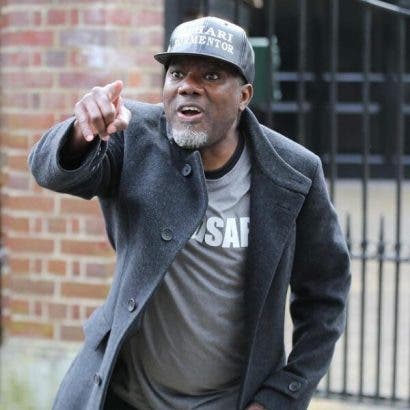



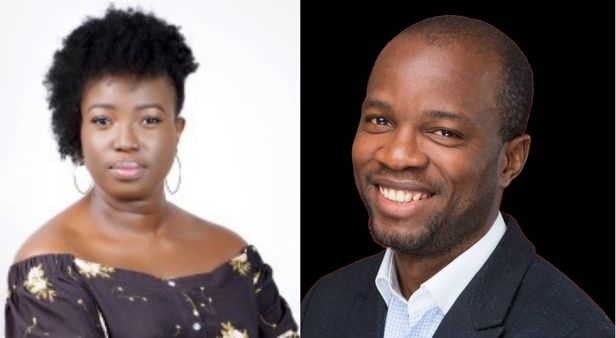
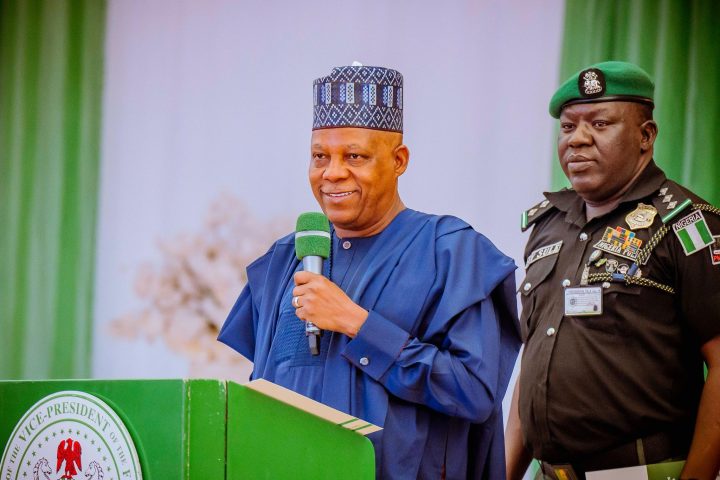









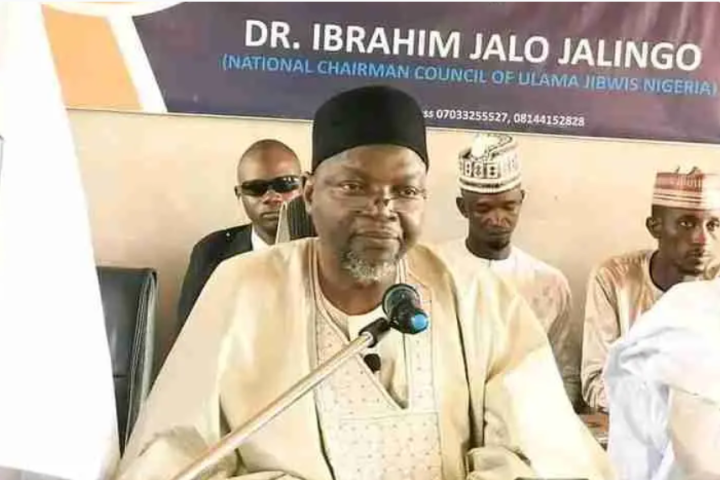
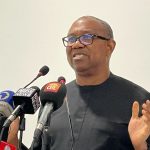
Follow Us